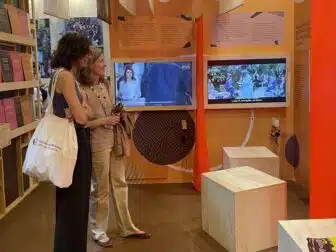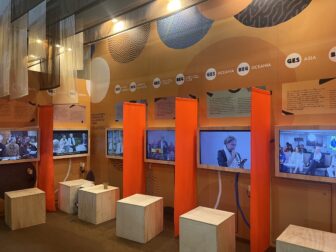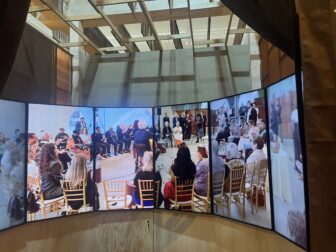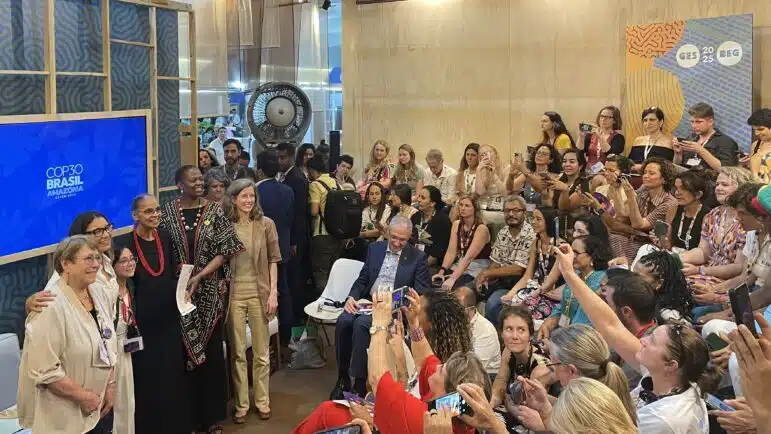
Regrounding Climate Action: The Global Ethical Stocktake at COP30
The Global Ethical Stocktake seeks to move ethical discernment into the heart of climate policymaking. Conceived in the lead-up to the United Nations climate conference (COP30) in Belém, Brazil, the GES took shape through six Regional Dialogues and countless grassroots dialogues (Self-Organized Dialogues). At COP30, the insights and messages that emerged in the GES process were represented by global and community leaders, Indigenous peoples and advocates, faith communities, youth and civil society. The GES Pavilion was a central axis for this work within the Blue Zone (the section of the venue for official delegations, heads of state, accredited observers and media, where negotiations occur and pavilions are located).
Opening of the GES Pavilion
On Wednesday, November 12, the opening of the GES Pavilion brought the work of the regional dialogues into the heart of the COP30 Blue Zone. Pavilions are places for countries and organizations to showcase their work through exhibitions and event programming, but the GES Pavilion stood apart as a space intentionally designed for learning and encounter—to listen, witness and be moved.
Alongside an amphitheater-style space for gathering and events, six booths displayed footage and interviews from the regional dialogues. (Click here to see the North America Dialogue video.) This immersive, multi-screen experience invited visitors to engage with voices and insights from Africa, Asia, Europe, the Caribbean, North America, South America, and Oceania.
Written placards summarized insights from the Self-Organized Dialogues that were presented to the GES Steering Committee. A touch screen allowed visitors to explore these dialogues in depth and see photos. Artwork featured collaborative collages co-created by participants at each regional dialogue.
A Moral Call to Action
The Pavilion’s unveiling on November 12 brought together high-level leaders who helped establish the GES’s gravitas and spirit. Sara Sofía Díaz León, a youth from Colombia, urged delegates to listen with sincerity and to remember their “gigantic responsibility” at this COP. Reflecting on the more than three decades since the 1992 Rio Convention and a decade since the Paris Agreement, she reminded leaders that “kids aren’t responsible, but we’re paying,” and asked pointedly: When will you give up fossil fuels? Her words set the moral tone for what followed.
Brazil’s First Lady and COP30 Special Envoy for Women, Janja Lula da Silva, spoke of her recent travels across Brazil’s six biomes and the women leading solutions in their communities. She emphasized that the GES must continue beyond COP30 because it creates space for those voices—Indigenous Peoples, women, youth—who too often remain on the margins of climate decision-making. Mukhtar Babayev, the COP29 President, similarly acknowledged the heart and soul that went into this effort and hoped countries would continue supporting this work.
COP30 President André Corrêa do Lago encouraged new forms of dialogue, emphasizing that the ethical dimension of climate action cannot be separated from its technical elements. Brazil’s Minister of Environment and Climate Change, Marina Silva, described the GES as “a work of solidarity,” built on listening and shared responsibility. Selwin Hart, special adviser to the UN Secretary-General, praised Minister Silva’s “stubborn insistence” in centering ethics during negotiations, calling her leadership “refreshing” at a time when leaders frequently compromise on values. Insisting that the GES can serve as a model for other multilateral processes, he reminded the audience of the deep inequalities from climate impacts, including the devastation caused by the recent Hurricane Melissa across the Caribbean.
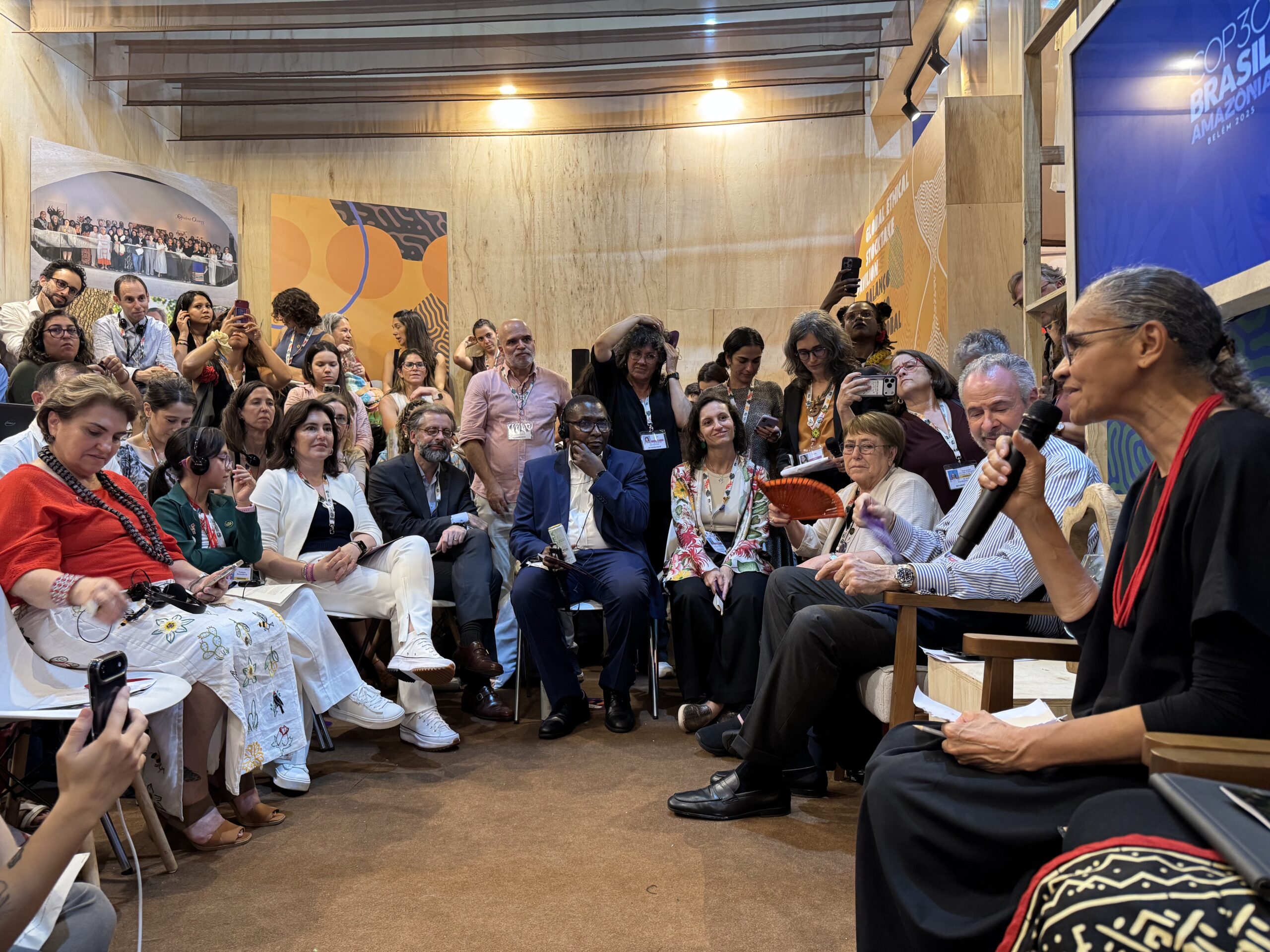
Within this broader context, CEE Executive Director Karenna Gore, who co-led the North America Dialogue with Minister Silva, praised the regional dialogues for propelling ancestral and community-rooted ethical frameworks into COP30. She highlighted the Haudenosaunee Thanksgiving Address and Taíno leadership, which offer frameworks of gratitude, kinship and responsibility that reach far beyond the negotiation halls.
She prioritized ethics in this crucial historical moment, drawing an analogy between the historic acceptance of injustices such as slavery and segregation and the present normalization of practices that harm the Earth. “Today, much of what is causing the climate crisis is perfectly legal and even socially encouraged,” she observed. “Ethics helps us see clearly—and see the path forward.”
Today, much of what is causing the climate crisis is perfectly legal and even socially encouraged. Ethics helps us see clearly—and see the path forward.
Karenna Gore
Wanjira Mathai, managing director for Africa and global partnerships at World Resources Institute and co-leader of the Africa Dialogue, expanded this lens by describing the climate crisis as “a crisis of inequality” and “a failure of values, not technology.” She reflected on the significance of holding the Africa Dialogue in Ethiopia, which has pledged no new fossil-fuel investment, and argued that ambition without ethics is fragile.
Former Chilean President and co-leader of the Central, South America, and Caribbean Dialogue, Michelle Bachelet, described climate change as a crisis of human rights as well as of science. “What about the kids who can’t breathe?” she asked. “The families who can’t eat?” Her call was clear: the world cannot continue with business-as-usual; words must give way to implementation.
Expanding the Ethical Lens
Discussions on the GES—its meaning, its methodology, and how it can inform COP30 outcomes—continued throughout the week, with the CEE team participating in eight events inside and outside of the Blue Zone. Highlights include Gore’s live taping of Climate Wisdom from COP30 with Brahma Kumaris and a conversation at TED Countdown House with Mathai and Al Gore. A high-level Blue Zone event featured voices from each regional dialogue, including CEE Advisory Board member and founder of The Shirley Chisholm Legacy Project, Jacqui Patterson, who called for GES’s formal institutionalization, noting that the ethical dimensions of the climate crisis cannot be measured in parts per million but are instead measured in the stories from communities.
Nonetheless, the COP30 negotiations were marked by delay and distraction. Though over 80 countries backed a “roadmap” away from fossil fuels, we remained concerned about the fossil fuel industry’s huge influence —one in every 25 attendees was a fossil fuel lobbyist. Moreover, 531 carbon capture and storage (widely regarded as a false solution propped up by the fossil fuel industry) lobbyists were present at COP30. Meanwhile, on Tuesday, November 11, Indigenous protesters were dragged out of the venue, and military forces assumed a larger presence at the summit. Still, COP30 has seen an unprecedented number of Indigenous people credentialed and actively participating in the discussions. More than 70,000 people took to the streets on Saturday, November 15, in support of the rights of land defenders and forests.
As the GES highlighted, we must privilege Indigenous and local knowledge in decision-making. CEE Director of Strategic Initiatives Samira Siddique spoke at the TED Countdown House on Saturday, November 15, stressing that traditional and Indigenous knowledge offers something science cannot measure: “The memory of relationship with the Earth, the wisdom of reciprocity, the ethics of belonging,” she said. “Yet these ways of knowing rarely sit at the table, and so our climate policies become technically sound, but spiritually hollow.”
The GES calls on policymakers to install these forms of knowledge alongside scientific and technical assessments in service of climate justice.
Carrying the GES Forward
The Center for Earth Ethics team remained on the ground in Belém through the end of COP30, following the progress of the GES and standing with the communities whose voices shaped it.
In the early afternoon of Thursday, November 20, a fire broke out in the Blue Zone. The venue was evacuated and the blaze contained, with no serious injuries. The response demonstrated how quickly people can come together in moments of crisis, a useful reminder amidst the tense battles over the wording of COP texts and outcomes. Negotiations resumed later that evening, and the conference closed on Saturday, November 22.
As the GES is carried forward beyond COP30, we call upon UN Member States to honor this effort not only in words but in action: through a just and rapid phase-out of fossil fuels, the protection of the rights of peoples and nature, and decisions rooted in ethics, justice and care for our shared home.
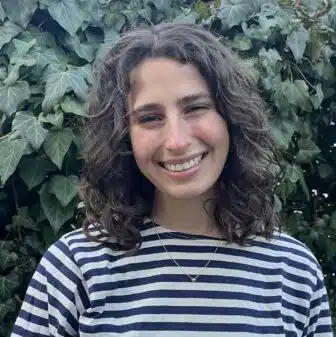
Clara Chavez-Ives
Clara Chavez-Ives is a research associate at the Center for Earth Ethics.
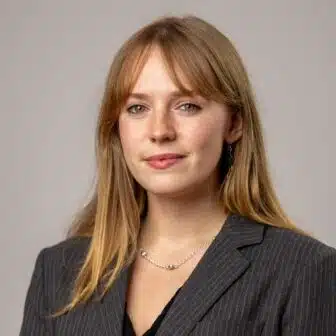
Rosie Semlyen
Rosie Semlyen is a research and policy associate at Center for Earth Ethics.

